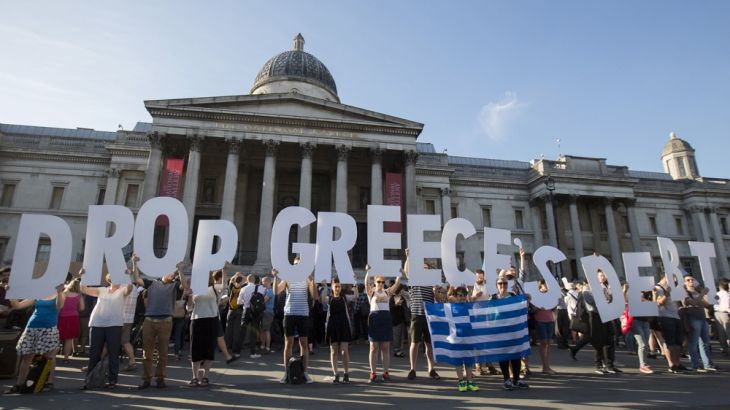
Can Greece be saved?
We examine the crucial choice facing Greeks on Sunday, whether to stay in or leave the eurozone.
This coming Sunday, Greeks will face a decisive choice on whether they wish to stay in or leave the eurozone.
We had made all the necessary concessions. The fact that our partners did not opt for this resolution makes me think that some of them, not all of them, had a hidden agenda - to destroy the first left government in Europe in order to show that there is just one economic policy in Europe - neoliberalism - and that there is no alternative.
Prime Minister Alexis Tsipras, who was elected in January on a promise to end years of austerity, has called for a referendum – asking Greeks to decide on whether to accept creditors’ proposals for more austerity in exchange for more loans.
Keep reading
list of 4 itemsA flash flood and a quiet sale highlight India’s Sikkim’s hydro problems
Why is Germany maintaining economic ties with China?
Behind India’s Manipur conflict: A tale of drugs, armed groups and politics
Despite receiving two bailouts worth $266 billion since 2010, the country has been struggling with austerity and is in debt worth nearly 180 percent of its GDP.
Unemployment has more than doubled and pensions and benefits have roughly halved.
Tsipras’ decision to campaign for a “No” vote led to the European Central Bank (ECB) to withdraw emergency lending, forcing Greece to cap bank withdrawals.
And in a shock move, Greece failed to pay a $1.73 billion payment to the International Monetary Fund (IMF), the first time any nation has failed to pay the organisation in its 71-year history.
Siegfried Muresan, a member of the European Parliament and vice-chair of the Budgets Committee told Counting the Cost that the decision was “jeopardising” the lives of ordinary Greeks.
We also spoke to George Katrougalos, the Greek deputy interior minister, on what this could mean for the future of the country and what the Syriza party wants to achieve.
Puerto Rico debt crisis ‘spooks’ creditors
Besides Greece, there has been another financial crisis spooking the markets and creditors.
Puerto Rico says it can’t pay back its $72 billion debt.
The governor of the US territory wants to defer the payment so he can renegotiate with creditors.
Andy Gallacher reports from the capital San Juan.
Afghanistan’s lamb pelt trade
The falling price of Afghan lambskin is affecting the country’s pelt industry. Some traders say exports are down by as much as 80 percent.
Lambskin is a niche product, usually used for women’s luxury coats when it is sold in the West and is crucial to Afghanistan’s ailing economic sector.
Nicole Johnston reports from Mazar-e-Sharif on how sheep farmers there are coping.